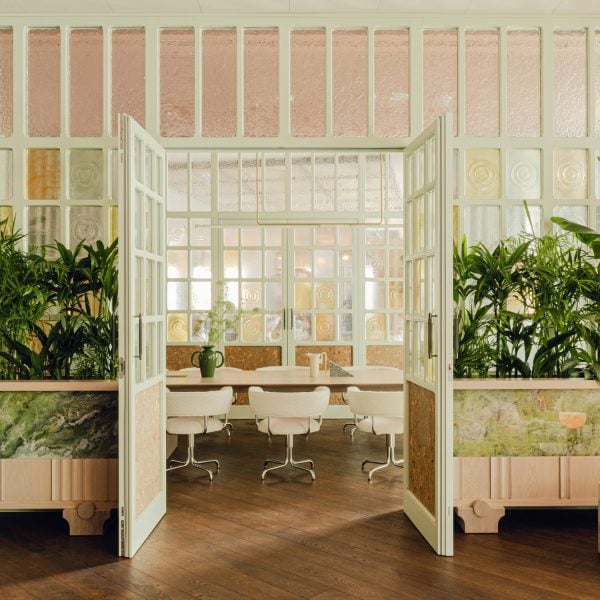Design studio Holloway Li has reimagined the interiors of the Puro hotel in Poznań, Poland, integrating natural materials, contemporary furnishings and locally sourced art to create “a layering of history”.
Drawing on Poznań’s cultural and craft heritage, the studio aimed to capture the city’s identity by weaving historical influences into the redesign of the hotel, which first opened its doors in 2014.
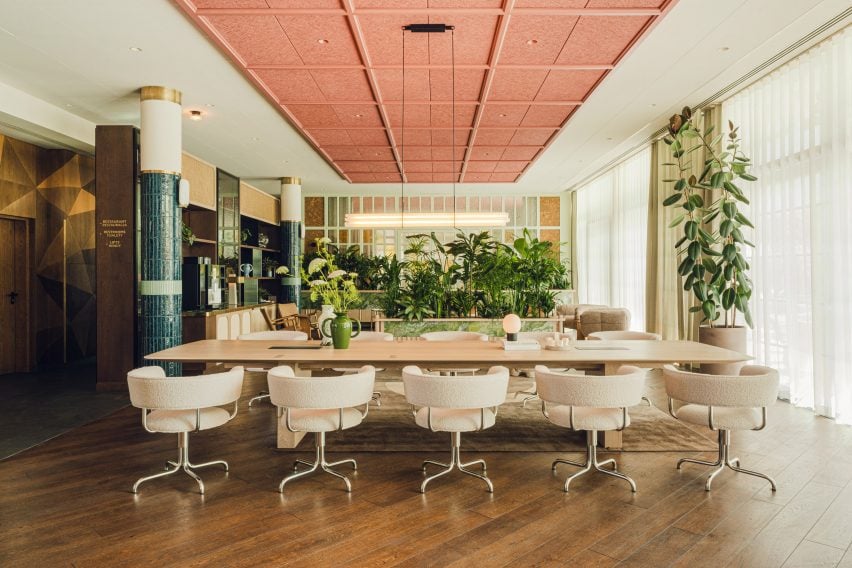
“We took inspiration from Poznań’s craft heritage, from the streamlined forms and luxurious carriage interiors of the early twentieth-century trains produced in local factories to experimental 1970s glassware,” Holloway Li co-founder Alex Holloway told Dezeen.
“The aim was to create a layering of history that business travellers, tourists and locals could enjoy.”
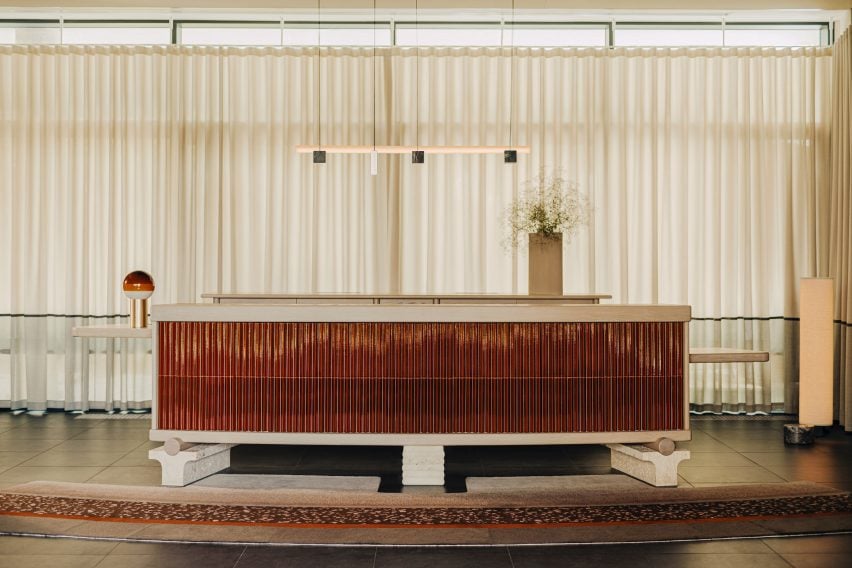
Holloway Li transformed the existing ground floor and guest rooms, introducing site-specific designs to create a distinctive guest experience.
The reception area features a curved desk crafted from burnt red glazed tiles and elevated on sculpted limestone plinths. A hand-tufted rug beneath it incorporates patterns and textures inspired by the nearby Old Market Square, while a pendant light suspended above adds a contemporary touch.
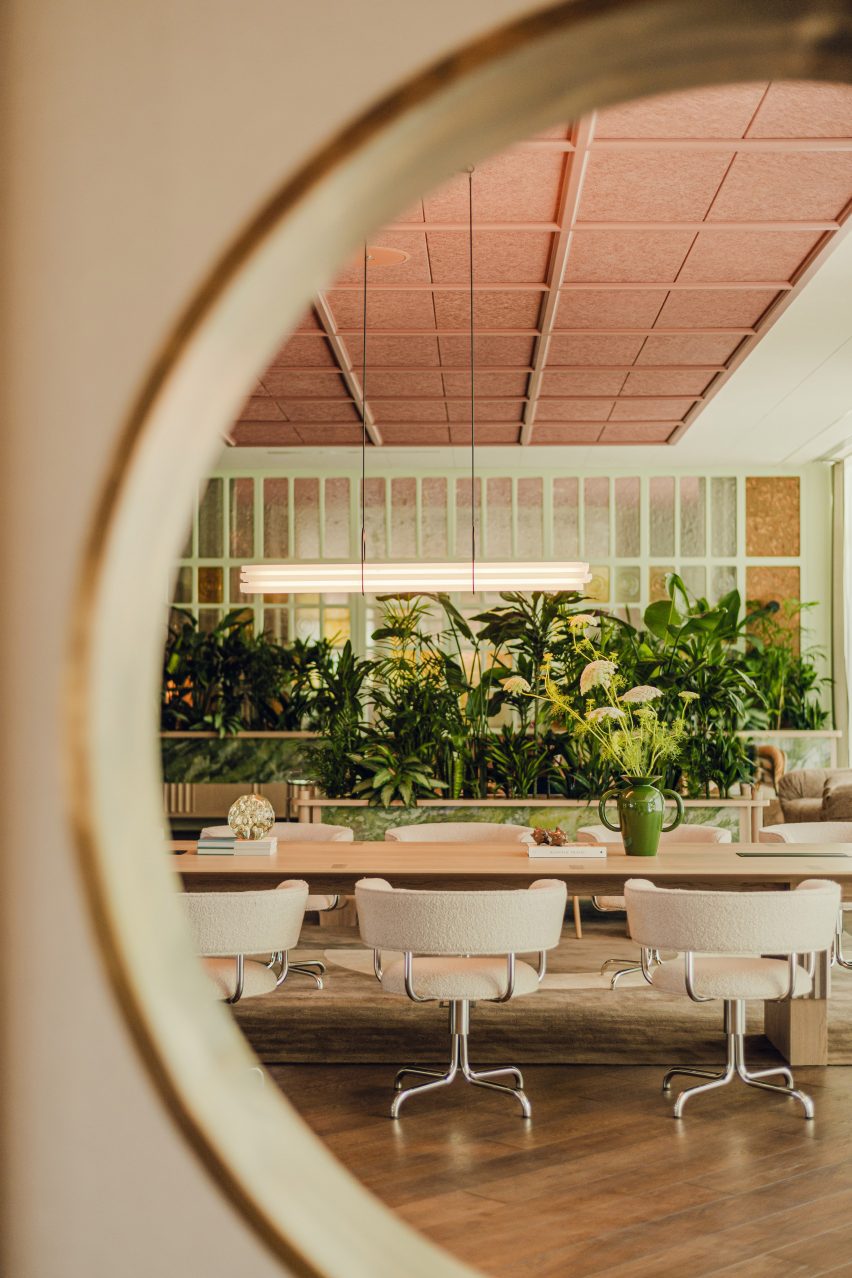
As a nod to Poznań’s industrial history, a partition wall in the lounge is punctuated by a large circular brass cutout, referencing the design language of high-speed trains produced in Poznań’s surrounding factories in the early 20th century.
The lounge offers a mix of versatile seating options, including the studio’s T4 armchairs in collaboration with furniture brand Uma, Swedish design company Fogia’s sofas and a large co-working table with inlaid burl wood markings.
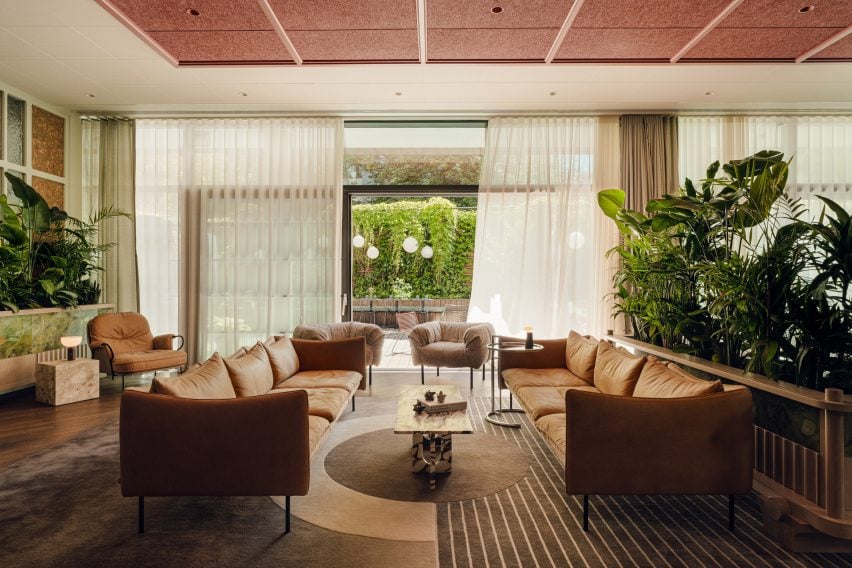
A palette of natural materials, including solid oak, leather and glazed ceramics, enhances the sense of warmth and domesticity throughout the space.
This material palette extends to the hotel’s curated art collection, developed in collaboration with Puro’s art director, Gosia Jankowska. The integration of local artistry was a key feature of the hotel’s redesign, showcasing works by local artists, many of whom are connected to Poznań University.
“The artwork curation was the result of working closely with Puro’s art director Gosia Jankowska, who manages the hotel’s growing art collection,” said project designer Grey Grierson. “All the artworks on display are connected to Poznań and add an unexpected textural dimension to the space.”
Local craftsmanship is further celebrated through bespoke decorative elements such as glass windows for a private meeting room, which Holloway Li developed in collaboration with local manufacturer Riwal Ceramika i Szkło.
The design of the windows was informed by the art nouveau style of Poznań’s historic townhouses and traditional crown glass.
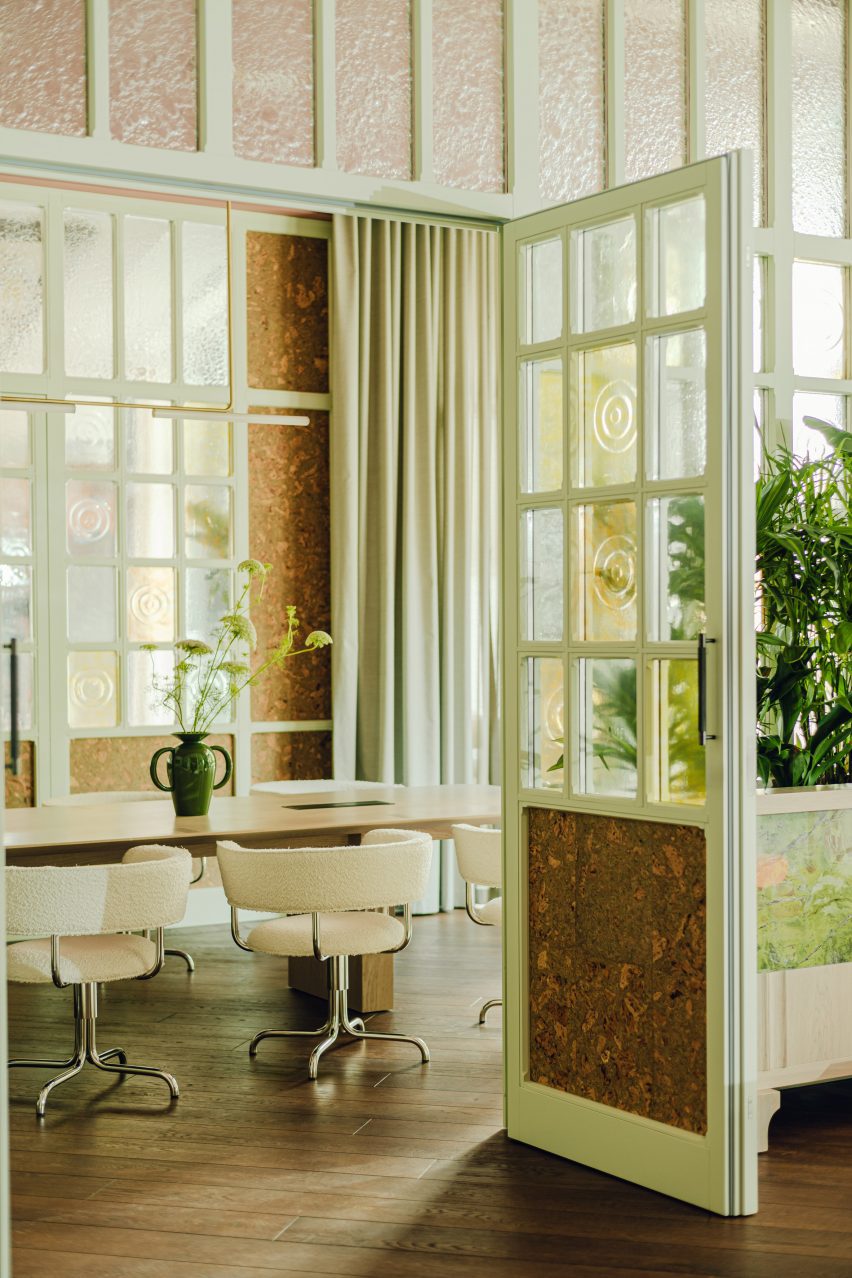
The hotel’s restaurant continues this theme, with leather dining chairs and long banquettes that nod to the rail carriage interiors manufactured in Poznań during the 1920s and 1930s.
To create a shift in the spaces as guests navigate through the hotel, the corridors take on a darker palette from the rest of the interiors with earthy red tones and dim lighting, guiding guests to lift lobbies clad in staggered pale limestone.
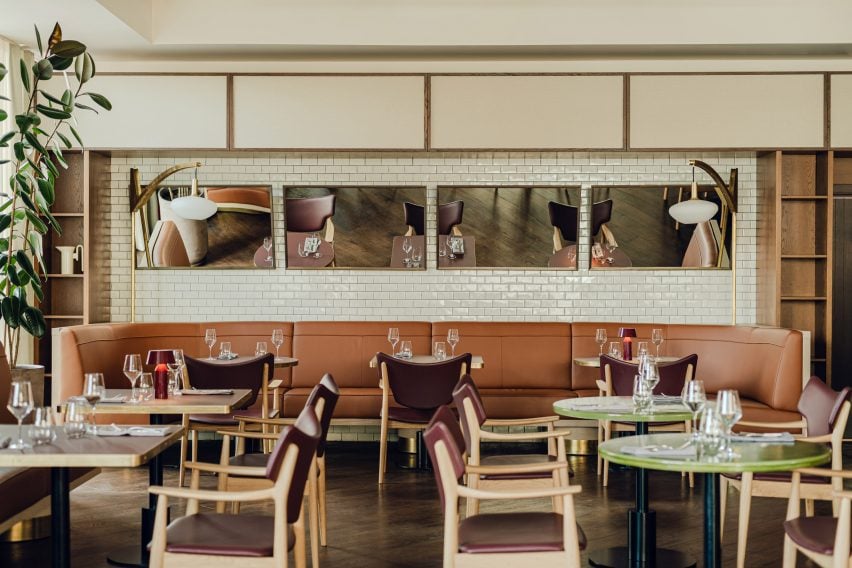
Outside the rooms, each guest room number was individually moulded and glazed by ceramics manufacturer Riwal Ceramika i Szkło. Inside, Holloway Li introduced a simple colour palette layered with soft textiles to evoke a sense of home.
The guest rooms feature a green datum with a rounded timber beading, while a gradient shower glass inspired by Polish glass homeware is the main focus of the bathrooms.
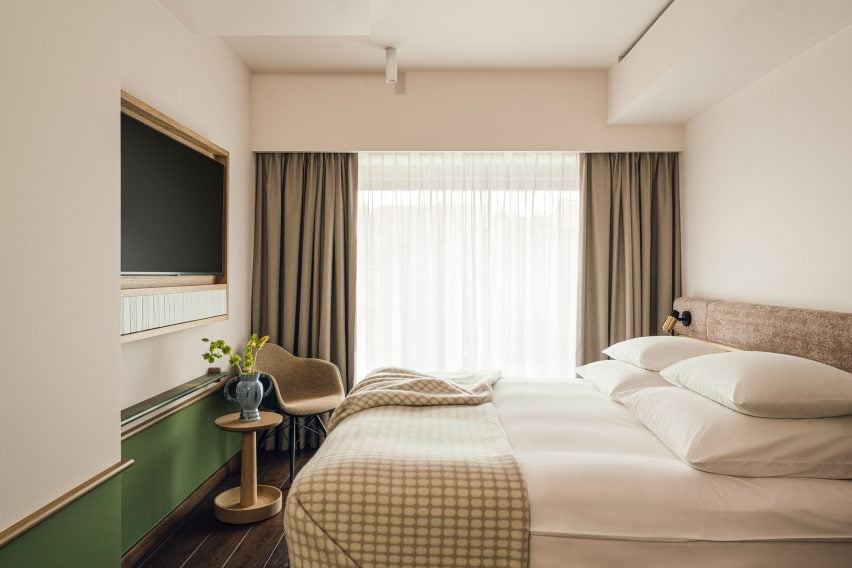
“There are moments of vibrancy which stand out from the natural palette,” said Holloway. “In the guestrooms, we introduced a vibrant gradient to the shower glass inspired by historic Polish pressed glass homeware.”
The suites offer elevated touches, such as limestone side tables carved to complement the curvature of fabric headboards and bathrooms outfitted with green tiles and matching marbled sinks.
Holloway Li is an interior design studio founded by Alex Holloway and Na Li in 2018.
Other recent projects by the studio include an apartment with a kitchen inspired by a fish and chip shop and a 1970s-inspired advertising agency office.
The photography is by PION Studio.

